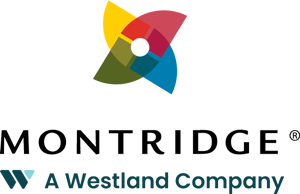
Guest Blogger: Chemistry Consulting Group
Chemistry Consulting Group is a full-service HR consulting firm servicing clients across Canada and throughout the US. They provide HR Consulting, Recruitment Services and Leadership Development to private and public sector organizations as well as non-profit entities. Chemistry takes time to understand your business needs and provide support in the areas where you need it, so you can continue to do what you do best – and let them handle the rest.
Unlocking the potential of your workforce extends beyond just job satisfaction. It has been well-documented that employee satisfaction and engagement can create a ripple effect in organizations, leading to increases in productivity and customer satisfaction as well as decreases in turnover and absenteeism.
While there are many strategies for increasing employee engagement, this article will focus on the value behind empathetic leadership and the importance of applying an individual lens to your workforce. Across the board, one of the most effective strategies for increasing employee engagement involves the development of an authentic management culture of caring, connecting with and recognizing individuals as well as their teams.
This, of course, is easier said than done. Every individual has had different experiences with leaders through previous employment, and this can result in mixed perceptions of what an ideal role manager looks like. Too often people are promoted into management roles due to their technical skills and job knowledge with little consideration of whether they have the leadership skills to develop a team and serve as a positive role model. Many managers themselves, as they climbed the corporate ladder, observed the leadership practices of negative role models, resulting in further misunderstandings of what it means to be a leader.
Continuous leadership development is key for all employees who manage a team however, there are several ways to contribute to a culture that is positive, supportive, and fosters empathy and understanding – all of which involve taking an individual lens to your workforce:
<<Read more on Strategies for Keeping Key Personnel in Your Organization
- Show your staff that you are interested in them as individual people, not just employees, and that you care about their physical and mental well-being. Say hello to them every day; and engage in casual conversation. Provide support and flexibility if something is going on in their personal life that you are made aware of.
Read more on Strategies for Keeping Key Personnel in Your Organization
- Communicate regularly about work, both informally as well as in meetings. Ask your team for their feedback or thoughts about workload, daily tasks, work environment, challenges they may be facing with customers, suppliers or other processes/procedures. Implement an annual employee survey to gauge satisfaction levels with key elements of employment such as compensation, benefits, culture, opportunities for growth, health and safety. In addition, an annual performance review where employees can do a self-assessment and give feedback is key. The greater the employee feels that their comments are being provided consideration in the workforce and within their own performance, the greater the likelihood they will stay engaged.
- Involve employees in improving efficiencies in the workplace. Actively invite individuals to contribute their ideas and solutions to operational or administrative challenges you or they may be having. Often, those working closest to the issues have great ideas individually and collectively to solve the problem. Don’t reject or judge ideas outright if they don’t fit – listen, thank them and explain the barriers objectively.
- Make it a habit to recognize and thank individuals for tasks done large and small – bonus if you can recognize them in front of their peers! Celebrate special achievements and milestones. One small organization created a “Culture Committee” that was chaired by the CEO and comprised of employees who were given a small budget and empowered to plan and execute annual activities custom-designed for their workplace. This included birthdays, work anniversaries, holiday parties or celebrations, community volunteer projects like food bank collections or donations to a special charity that was important/meaningful to an employee, celebrating the completion of projects or major milestones, etc.
- Provide technical training and professional development based on each individual’s position, skills, career goals and potential. Think about training as an investment, not a cost, which will contribute greatly to increased productivity and improved bottom line. Training plans can be developed in conjunction with the annual performance review process. If done collaboratively with each individual employee, this can be much more effective than a “top-down” approach from management. Rather than consider a “one size fits all” approach to training, in which each employee is provided similar courses, consider working with each individual to consider what training they feel can best help them achieve their career goals within the organization.
- Ensure that employee engagement and other HR issues are key elements in your management team’s priorities. Engagement and HR should be on the agenda at the executive table and as equally important as finance, operations, sales, share value, etc. Just as you do with budgets and other operational strategies, assign HR roles, responsibilities and accountability to each leader, from the chief executive down.
Labour and skills shortages are at an all-time high in almost every sector, with no end in sight in the near future. One of the keys to addressing this problem is to be laser-focused on retaining the employees you already have through increasing engagement and satisfaction, among other things. Companies who are rejecting the old paradigm of management practices and pivoting to current, employee-centric concepts are finding the benefits truly outweigh the time and cost of change.

Did you miss our 7th Annual Expert Panel Discussion?
Don’t worry - Download the webinar now and learn valuable insights shared by our expert panelists, including Mark Sheritt, Ryan Anderson, Judith Mewhort, and Debra Walker, as they delve into critical HR issues in 2023 and provide practical solutions.






